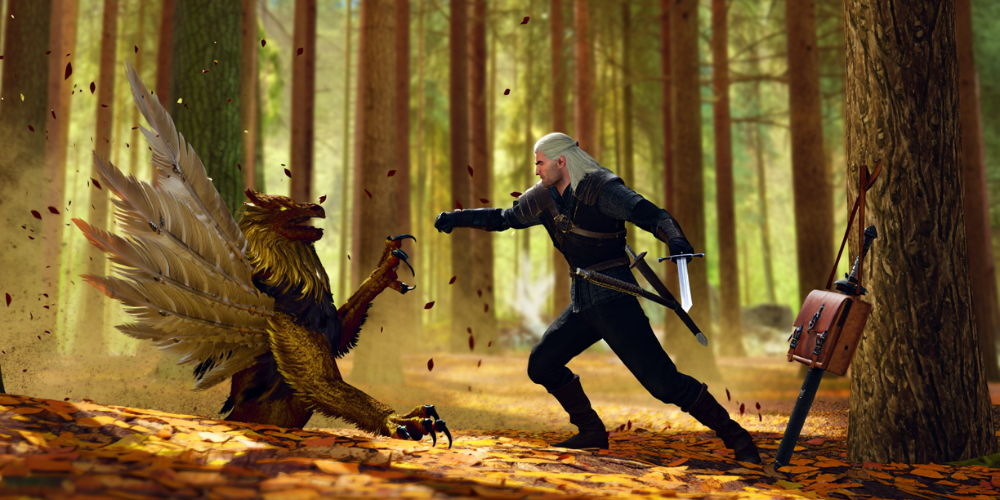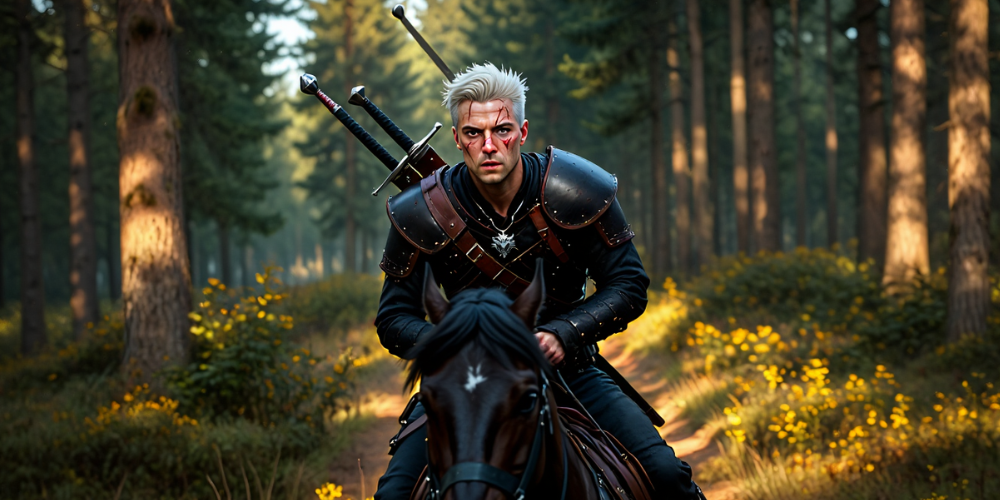Witcher 3: Wild Hunt Beginner’s Guide – Tips for Surviving the Continent
- 2025-07-09

Are you ready to dive into the dangerous, thrilling world of The Witcher 3: Wild Hunt? Whether you’re new to RPGs or a longtime fan of fantasy games, The Witcher 3 takes you on an unforgettable adventure across the Continent. The game is packed with rich storytelling, tough decisions, and some of the most beautiful – and deadly – landscapes you’ll ever explore. But with so much to see and do, it’s easy to feel overwhelmed. That’s why we’ve created this friendly, easy-to-follow guide to help you survive (and thrive!) as the legendary monster hunter, Geralt of Rivia.
In this guide, you’ll learn proven tips and strategies for combat, world exploration, character development, and surviving the monsters that lurk in every shadow. Grab your swords, and get ready—this is the Witcher 3 beginner’s guide every hero-in-training needs!
Getting Started: Tips Before You Begin
Choose the Right Difficulty Level
The Witcher 3 offers several difficulty options. If you’re looking for a good story and relaxed fights, choose "Just the Story" or "Story and Sword." For a greater challenge, try "Blood and Broken Bones" or even "Death March!" Don’t be shy to lower the difficulty if you get stuck.
Understand the Interface
Take time to learn the basic UI:
- Mini-map: Shows your location and quest markers.
- Inventory: Where you manage weapons, items, alchemy, and crafting.
- Character Panel: Track your progress, experience, and skill points.
Check tutorials on the pause menu if you need more info.

Mastering Combat
Know Your Enemies
Monster types matter. Use your bestiary (press ‘G’) to learn about each foe. Read about their weaknesses — some take more damage from bombs or particular oils, others from special Signs (Geralt’s magic).
- Drowners: Weak against Igni Sign (fire) and Necrophage Oil.
- Wraiths: Use Yrden Sign (magic trap) and Specter Oil.
- Griffins: Use Hybrid Oil, crossbow when airborne, Aard to stun.
Make Use of Signs
Geralt has five magic Signs:
- Igni: Burns targets. Great vs. monsters and groups.
- Quen: Protective shield, prevents incoming damage (especially good for beginners!).
- Aard: Blast of force, great for stunning or knocking down enemies.
- Yrden: Magic trap, slows enemies like wraiths.
- Axii: Calms people or enemies; use in conversations or to stun foes in combat.
Practice using them all — you will need different Signs for different fights.
Combat Tactics
Dodging is your best friend! Don’t just block or parry — roll or sidestep to evade attacks, especially from larger monsters. Use light attacks for quick combos, then heavy attacks to break defenses. Fight smart, not just hard!
Exploring the World
Talk to Everyone
NPCs give quests, sell rare items, and share gossip about monsters or treasure. Exhaust dialogue options—you can uncover contracts, hidden locations, or even new Gwent cards!
Follow the Main and Side Quests
The main quest is gripping, but side quests and Witcher Contracts offer unique stories, powerful gear, and valuable XP. Always check the recommended quest level to avoid tough fights you’re not ready for.
Loot Everything (But Be Smart)
Explore houses, caves, and ruins for loot. You’ll find ingredients, weapons, and diagrams. But watch out — stealing in front of guards or townsfolk can cause trouble.
Use Fast Travel and Roach
The Continent is huge. Use Signposts for quick travel between locations you’ve discovered. You’ll also rely on Roach, Geralt’s trusty horse, to quickly move between quests and towns.
Building Your Geralt: Skills, Alchemy, and Gear
How Leveling Works
You gain experience (XP) by completing quests and killing monsters. Each level gives you a skill point to invest in:
- Combat: Increases sword and crossbow skills.
- Signs: Improves your magic abilities.
- Alchemy: Strengthens potions, bombs, and oils.
- General: Grants special perks.
Don’t spread your points too thin. Specialize in what works for you!
Alchemy is Your Secret Weapon
Visit herbalists and gather plants. Alchemy allows you to craft:
- Potions (like Swallow for healing)
- Bombs (helpful vs monster nests)
- Oils (add damage vs certain monsters)
- Decoctions (powerful buffs with some risks)
Always keep Swallow and Thunderbolt handy, and use oils for big fights!

Upgrading Weapons, Armor, and Witcher Gear
You’ll find better swords and armor as you explore. Upgrade your Witcher gear as soon as you can — these sets boost critical stats and often have special bonuses. Visit blacksmiths and armorers for repairs and upgrades.
Money Management
Don’t hoard junk. Sell broken swords and extra loot to merchants or armorers, but dismantle rare items for crafting materials. If short on cash, take on more Witcher Contracts or play Gwent to win cards and gold!
Essential Survival Tips
Save Often
Anything can happen in The Witcher 3. Save before battles, tough choices, or exploring dangerous areas. Use manual save slots in case you want to go back.
Read the World
Look for clues in the environment — Witcher Senses (hold right mouse or L2/trigger) reveal footprints, hidden objects, and monster tracks. Geralt’s journal and the bestiary help you prepare for what’s ahead.
Use Meditation
Geralt can 'meditate' anywhere it’s safe. This restores health (on lower difficulties) and refills potions and bombs (if you have alcohol like 'Alcohest'). It also changes the time of day, helpful for certain quests.
Advanced Tips: What Pros Wish They Knew Early On
- Choose dialogue carefully: Your choices matter. Some have lasting effects on the story or characters.
- Gwent isn’t just a mini-game: Winning gets you new cards and sometimes unique rewards. Learn to play early!
- Watch out for item weight: Carrying too much makes you slow. Sell, stash, or dismantle excess gear.
- Upgrade healing: Find improved Swallow recipes and keep food for extra health.
- Explore Question Marks: These show hidden treasures, caves, and monster nests on your map. Many contain valuables or secrets for side quests!
- Don’t ignore armor sets: Witcher School gear (like Griffin, Cat, Bear, Wolf) offers special powers and is upgradeable.
Conclusion and Quick Recap
The Witcher 3: Wild Hunt is a massive, challenging, and incredibly rewarding RPG adventure. Take your time, explore at your own pace, and don’t worry if you make mistakes — Geralt’s journey is about learning and adapting. Talk to everyone, experiment with combat styles, dive into crafting and alchemy, and remember: save often!
Whatever your quest, remember these final tips:
- Trust your Witcher Senses.
- Use the right oil and Sign for each monster.
- Keep your gear in top shape.
- Don’t rush the story—side quests matter!
- Enjoy the journey—The Witcher 3 rewards explorers and storytellers alike.
May your path always be clear, Witcher!





